Israel cuts off Gaza aid to pressure Hamas to accept new ceasefire proposal
Hamas said Israel's decision to cut off aid was “cheap extortion, a war crime and a blatant attack" on the existing ceasefire agreement. The closure would exacerbate already dire living conditions
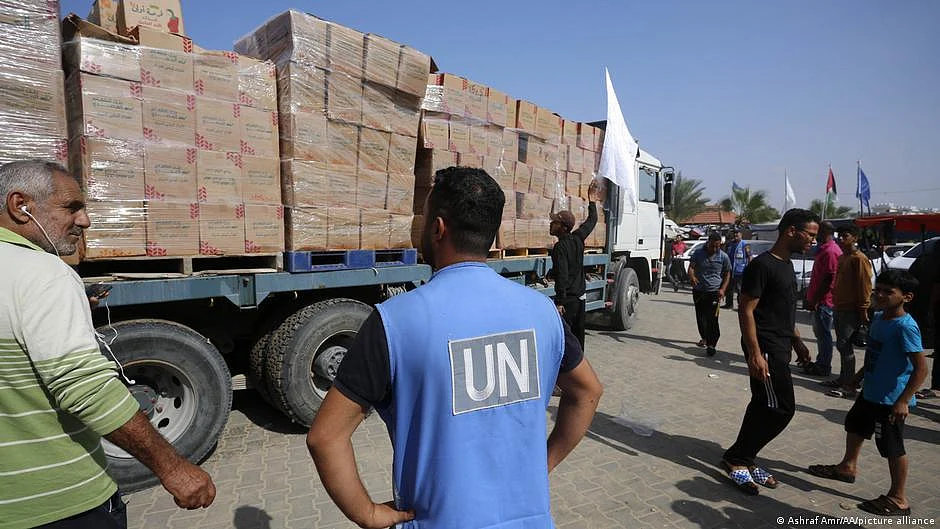
Israel stopped the entry of all goods and supplies into the Gaza Strip on Sunday and warned of “additional consequences” if Hamas doesn't accept a new proposal to extend a fragile ceasefire.
Hamas accused Israel of trying to derail the existing ceasefire agreement and said its decision to cut off aid was “cheap extortion, a war crime and a blatant attack" on the truce, which took hold in January after more than a year of negotiations. Both sides stopped short of saying the ceasefire had ended.
The first phase of the ceasefire, which included a surge in humanitarian assistance, expired on Saturday. The two sides have yet to negotiate the second phase, in which Hamas was to release dozens of remaining hostages in return for an Israeli pullout and a lasting ceasefire.
Egypt, which has served as a key mediator between Israel and Hamas, condemned the closure and accused Israel of using “starvation as a weapon.” Foreign Minister Badr Abdelatty called for the immediate implementation of Phase 2 of the existing ceasefire agreement.
Israeli Prime Minister Benjamin Netanyahu said that under the existing agreements Israel could resume fighting after the first phase if it believed negotiations were ineffective. He said the ceasefire would only continue if Hamas kept releasing hostages, telling his Cabinet that “there will be no free lunches.” He said Israel was “full coordinated” with President Donald Trump's administration.
“There will be famine and chaos,” she said. “Closing the crossings is a heinous crime:" Fayza Nassar, a woman living in the heavily destroyed urban Jabaliya refugee camp, said.
There was no immediate comment from the United States on the proposal announced by Israel or its decision to cut off aid.
Hundreds of aid trucks have entered Gaza daily since the ceasefire began on January 19. But residents said prices doubled on Sunday as word of the closure spread and people raced to stock up.
"Everyone is worried," said Sayed al-Dairi, a man living in Gaza City. “This is not a life.”
Fayza Nassar, a woman living in the heavily destroyed urban Jabaliya refugee camp, said the closure would exacerbate already dire living conditions.
“There will be famine and chaos,” she said. “Closing the crossings is a heinous crime.”
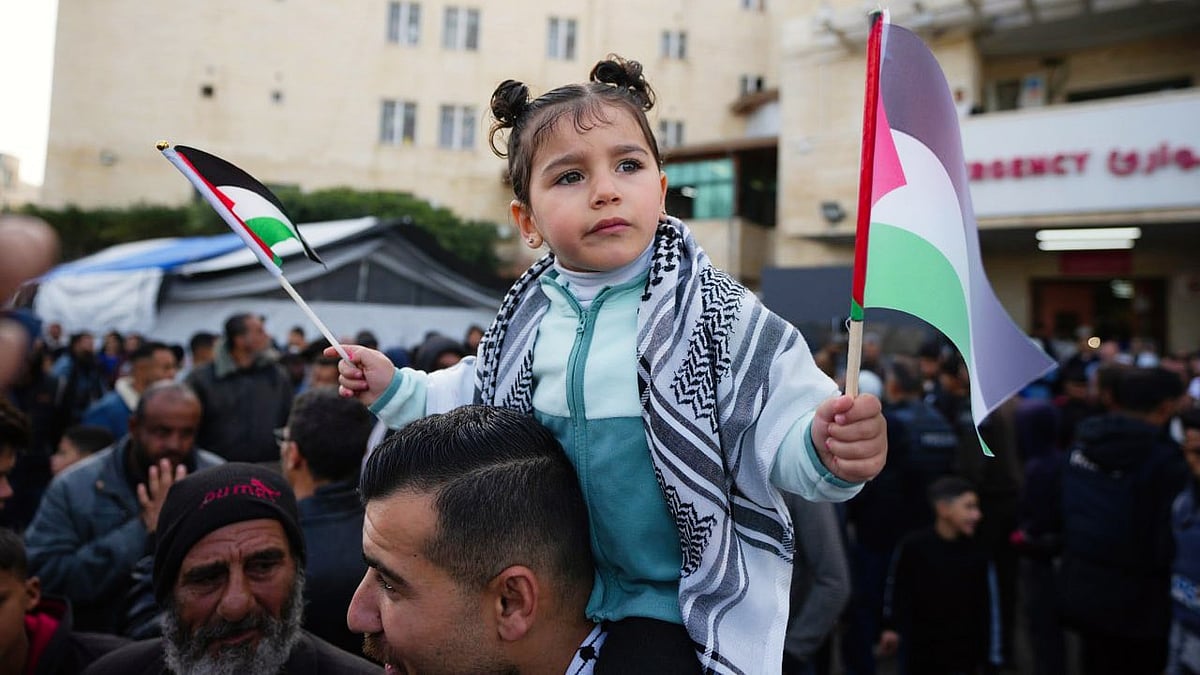
Israel says it has US backing
Israel said the new proposal, which it said came from US Mideast envoy Steve Witkoff, called for extending the ceasefire through Ramadan — the Muslim holy month that began over the weekend — and the Jewish Passover holiday, which ends on April 20.
Under that proposal, Hamas would release half the hostages on the first day and the rest when an agreement is reached on a permanent ceasefire, Netanyahu said.
Hamas warned that any attempt to delay or cancel the ceasefire agreement would have “humanitarian consequences” for the hostages and reiterated that the only way to free them was through implementing the existing deal, which did not specify a timeline for freeing the remaining captives.
Hamas has said it is willing to free the hostages all at once in Phase 2, but only in return for the release of more Palestinian prisoners, a permanent ceasefire and the withdrawal of Israeli forces.
An Egyptian official said Hamas and Egypt would not accept a new proposal aimed at returning the remaining hostages without ending the war. The official noted that the agreement had called on the two sides to begin negotiations over Phase 2 in early February.
The official, who was not authorised to brief media and spoke on condition of anonymity, said mediators were trying to resolve the dispute.
Ceasefire has been marred by disputes
Under the first six-week phase of the ceasefire, Hamas released 25 Israeli hostages and the bodies of eight others in exchange for the release of nearly 2,000 Palestinians imprisoned by Israel. Israeli forces pulled back from most of Gaza and Israel allowed a surge of humanitarian aid to enter.
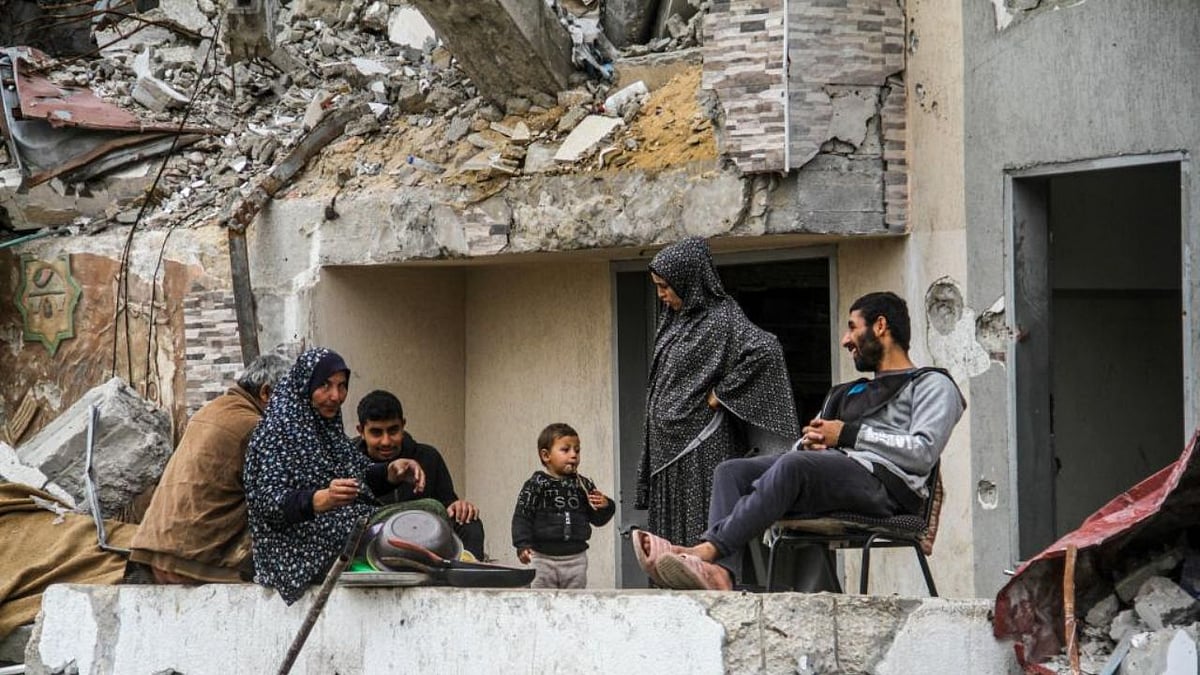
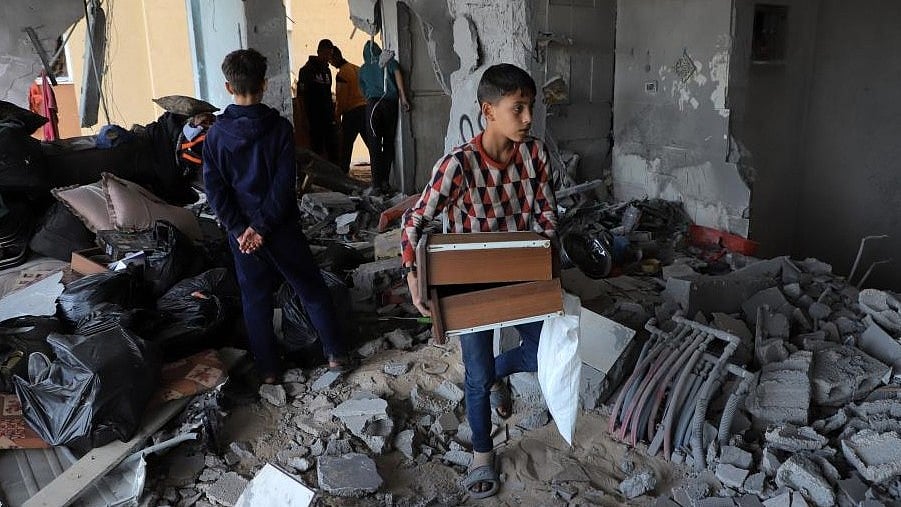
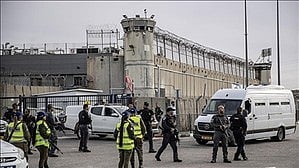
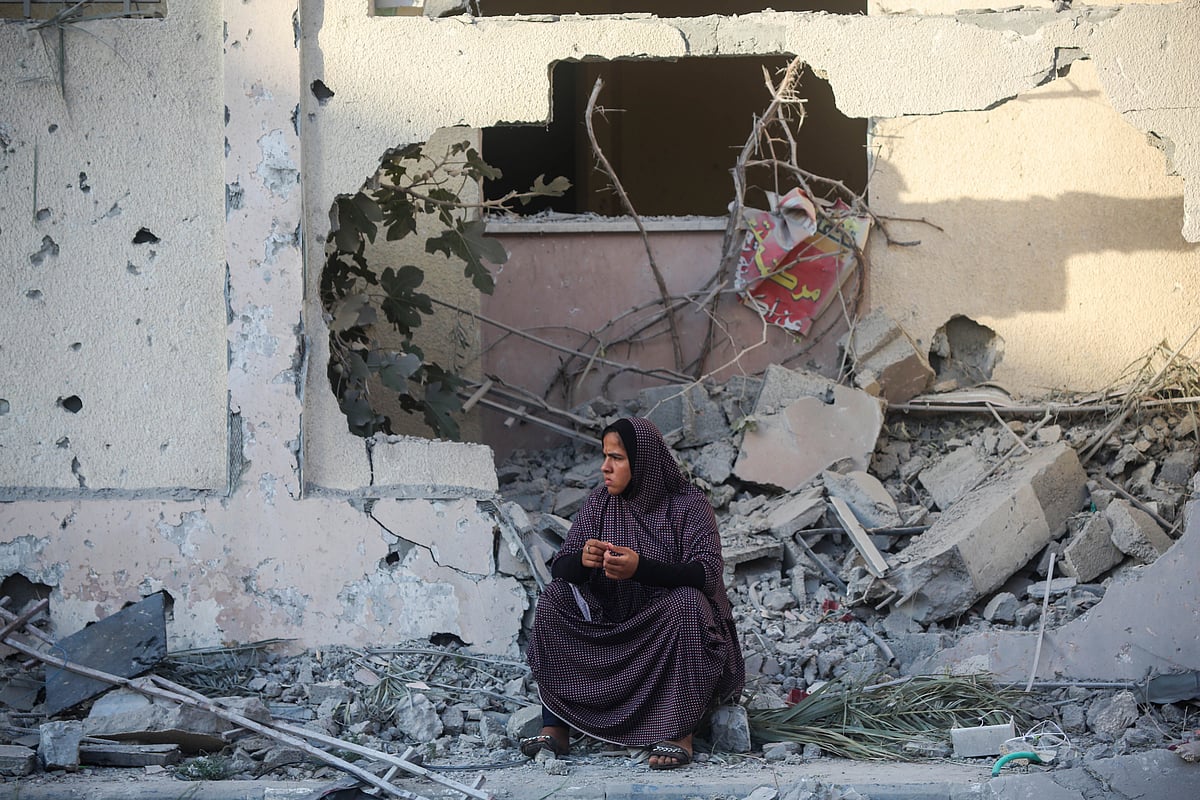
But the first phase was marred by repeated disputes, with each side accusing the other of violations.
Israeli strikes have killed dozens of Palestinians who the military said had approached its forces or entered areas in violation of the truce. Israel carried out an airstrike on Palestinians who it said were planting an explosive device in northern Gaza near the border on Sunday. Gaza's Health Ministry said two men were killed in the strike and that Israeli fire killed two other people elsewhere.
Hamas paraded the captives — some of whom were emaciated — before crowds in public spectacles that Israel and the United Nations said were cruel and degrading. It initially returned the wrong set of remains instead of those of a mother who was killed in captivity along with her two young children.
Hamas said Israel's aid suspension was another violation, saying the ceasefire and aid deliveries were supposed to continue during negotiations over Phase 2.
Israel was accused of blocking aid throughout the war
Israel imposed a complete siege on Gaza in the opening days of the war and only eased it later under US pressure.
UN agencies and aid groups accused Israel of not facilitating enough aid during 15 months of war, and the Biden administration repeatedly pressed it to do more. Experts warned on several occasions that hunger was widespread in Gaza and that there was a risk of famine.
The International Criminal Court said there was reason to believe Israel had used “starvation as a method of warfare" when it issued an arrest warrant for Netanyahu last year. The allegation is also central to South Africa's case at the International Court of Justice accusing Israel of genocide.
Israel has denied the accusations and rejected both court actions as being biased against it. Israel says it has allowed enough aid to enter and blamed shortages on what it said was the U.N.'s inability to distribute it. It also accused Hamas of siphoning off aid.
Kenneth Roth, the former head of Human Rights Watch who is now a visiting professor at Princeton University, said that Israel as an occupying power has an “absolute duty” to facilitate humanitarian aid under the Geneva Conventions.
“Israel's latest threat to cut off all aid is a resumption of the war-crime starvation strategy” that led to the ICC warrant, he said.
The war began when Hamas-led militants stormed into southern Israel on Oct. 7, 2023, killing some 1,200 people, mostly civilians, and taking 251 hostage. The militants are currently holding 59 hostages, 32 of whom are believed to be dead, after releasing most of the rest in two ceasefire agreements.
Israel's offensive has killed over 48,000 Palestinians, according to Gaza's Health Ministry. It says more than half of those killed were women and children but does not specify how many of the dead were combatants.
Israeli bombardment and ground operations pounded large areas of the strip to rubble and at the height of the conflict displaced some 90 per cent of the population of 2.3 million Palestinians. The war has left most of Gaza's population dependent on international aid for food and other essentials.
Follow us on: Facebook, Twitter, Google News, Instagram
Join our official telegram channel (@nationalherald) and stay updated with the latest headlines
